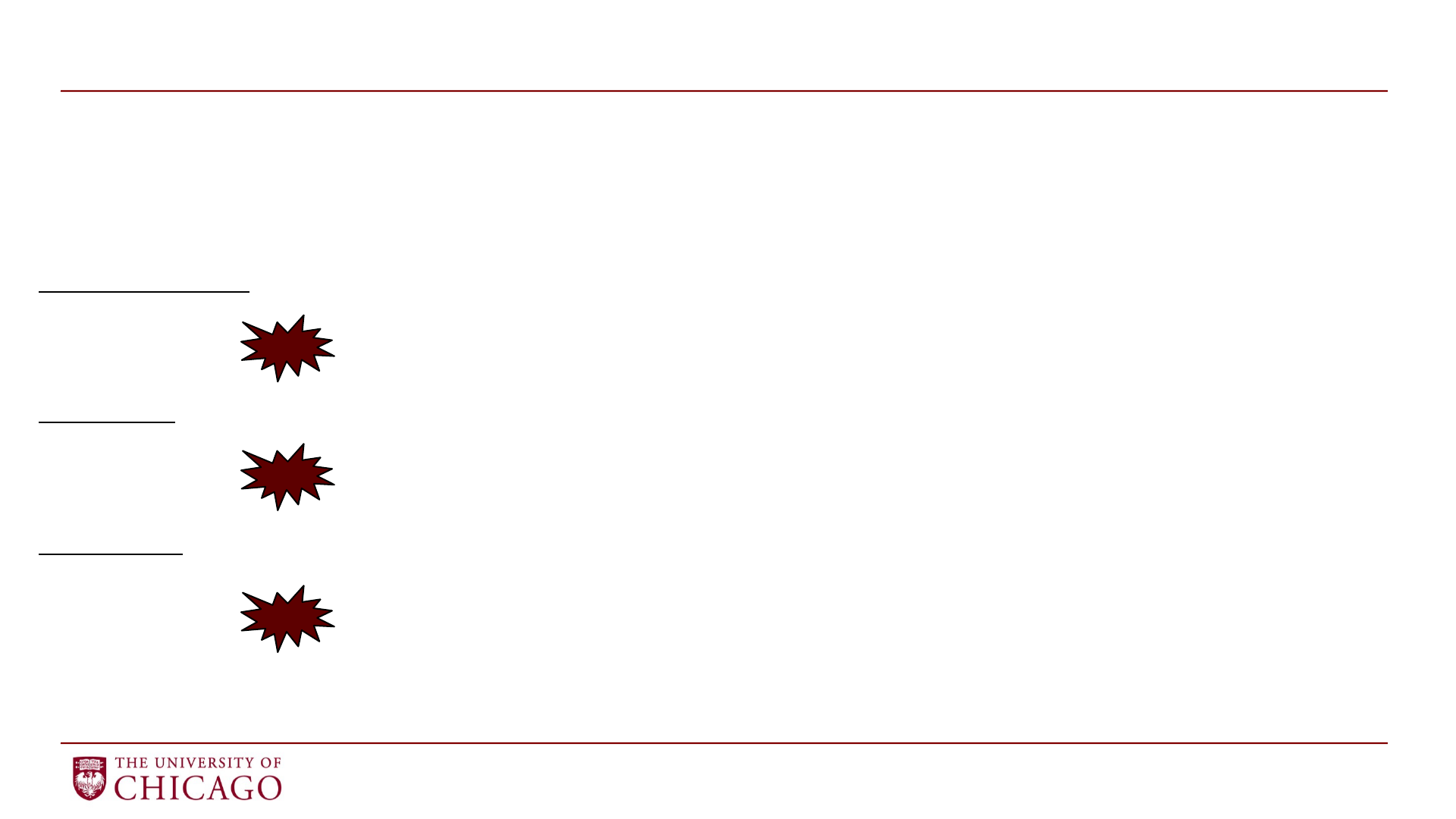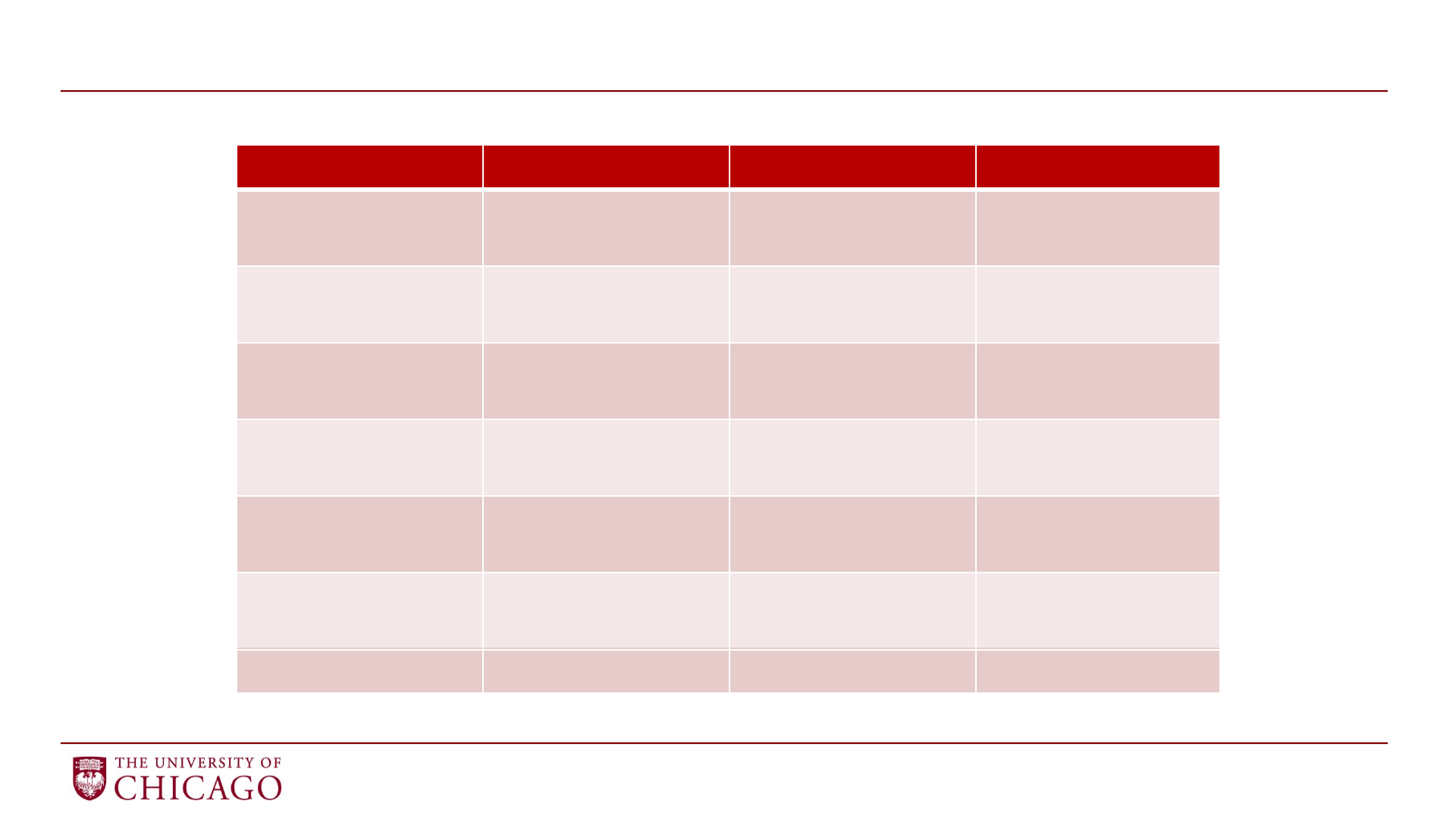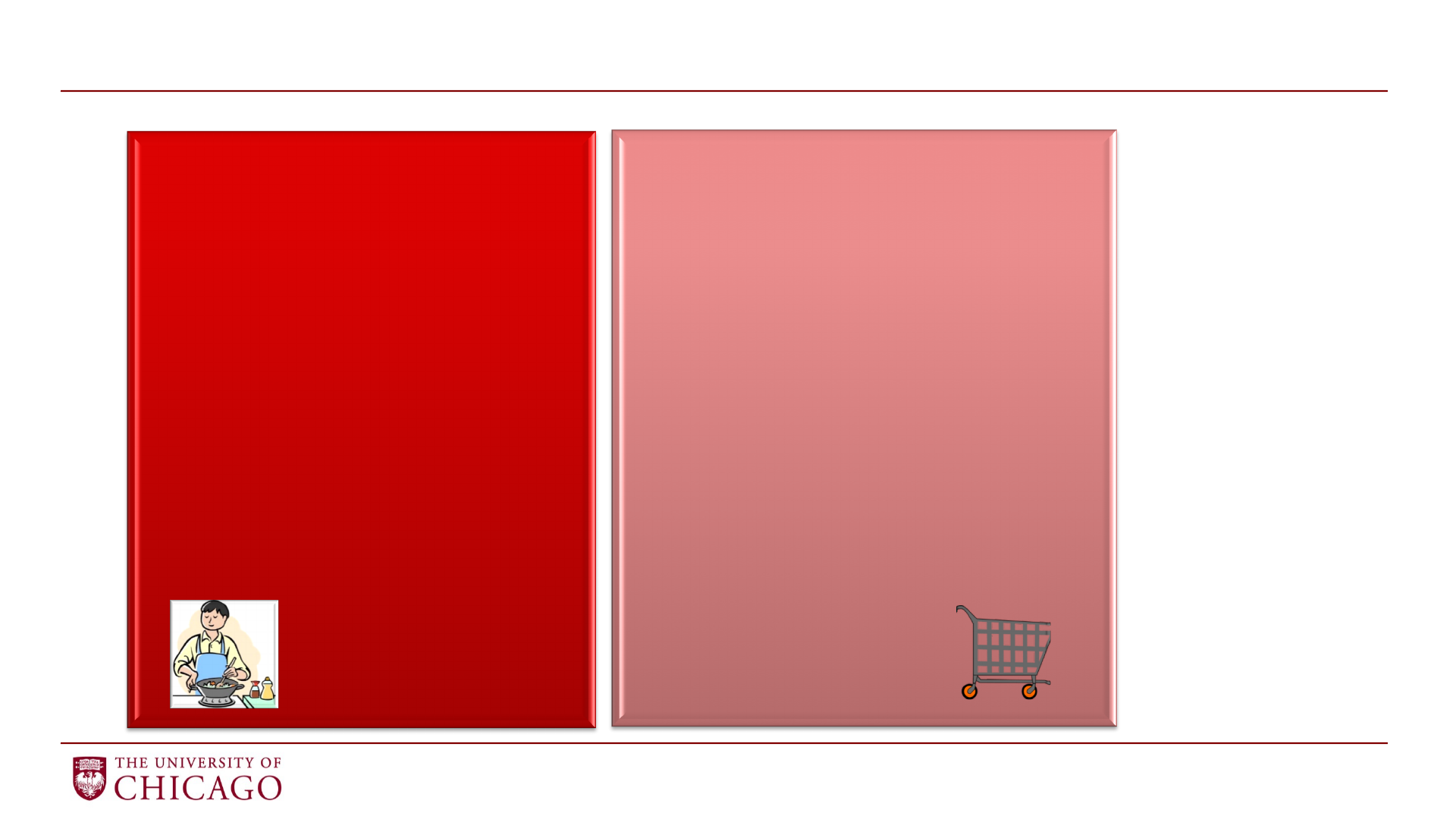
Frugal GRAD Budgeting 101:
Personal Budgeting for Graduate Students and Postdocs
UCHICAGO SEVEN
FACETS OF WELLNESS
Sponsored by:
Campus and Student Life and
UChicagoGRAD
University of Chicago

Personal Budgeting for Graduate Students
• What Is a Personal Budget?
• Elements of a Working Budget
• How to Set Realistic Budget Goals
• What’s In It for Me: Why Budget?
• Lessons Learned—Budgeting Basics from Cynthia Hillman, PhD ‘15
• Examples: Tracking Small Purchases, Especially Food
• Managing Food Costs

What Is a Personal Budget?
A way to make sure you will have the resources to do what you most want to do.
A budget should…..
Have a Purpose or defined goal that is achieved within a certain time period.
Myth: It is intended to identify each individual purchase ahead of time.
Be simple: The more complicated the budgeting process is, the less likely you are to keep up with it.
Myth: Your budget should include all detail of all income and expenses.
Be flexible: A budget will change from month to month and will require monthly review and alternation.
Myth: Your income and expenses should stay the same every month.

Elements of a Working Budget
4
Estimate Monthly
Income
• Take Your Stipend/
Loan Amount and
Divide by the Number
of Months You Need
It to Last (9-12)
• Pay Attention to
Timing of Irregular
Income
Estimate Monthly
Fixed Expenses
• Rent/Housing,
Transportation,
Insurance
(Renter’s/Auto),
Phone/Internet
• Debt Payments
• Factor in Quarterly
School Fees
Estimate Monthly
Variable Expenses
• Groceries and Other
Basics
• Going Out,
Entertainment
• Netflix, Hulu, Cable,
etc.
• Clothing
Savings/Financial
Goals
• Unplanned Expenses
(Illness,
Underemployment)
• Research/Conference
Travel
• Computer or Other
Research Tools
• Retirement

How to Set Realistic Budget Goals
• Define your priorities…budgeting is about decisions,
NOT money.
• Expenses should be about 5% or 10% below your estimated
income. Look to variable expenses to make and impact.
• Aim for a 90% success rate for your budget. Decision fatigue
will catch up with you at some point.
5

What’s In It for Me … Why Budget?
You have a statistically better chance of …
• Reaching your savings and financial goals
• Ensuring you are spending according to your priorities
• Creating peace of mind and ensuring you have money for
the things you need.
6

Lessons Learned - Budget Basics
• Eliminate Mindless Spending
Pay attention to your non-fixed/variable expenses.
Tip: These are food, entertainment, clothing.
• Allocate Funds Immediately
Fund various accounts as soon as you get your stipend/paycheck.
Tip: Savings is a monthly bill due each month.
• Plan Regularly
Review your budget at the beginning of the month or the beginning of each week.
Tip: Give yourself an allowance to spend cash on food & going out.
7

Examples: Tracking Small Purchases, Especially Food
Item
Cost per Item/Day
Cost
per Month
Cost per
Year
Morning Snack
(3x/week)
$2.25
$27
$324
Afternoon Coffee
(3x/week)
$2.25
$27
$324
Sunday Brunch w/
Friends (2x/month)
$20
$40
$480
ILL Library
Fines
(1x/month)
$6
$72
CVS
Runs
(2x/month)
$12
$24
$288
The
Pub after Class
(2x/week)
$6
$120 (per
quarter)
$360
8

Managing Food Costs
9
• PREPARE YOUR
OWN FOOD
• Set aside time on the
weekend to menu plan
• Eat perishable food
first
• Always have a freezer
meal
• KNOW YOUR FOOD
PRICES
• What does your favorite
bottle of wine cost?
• How much is a box of
cereal? One dozen eggs?
A pound of pasta?
• Note: EVERYTHING
goes on sale eventually.
